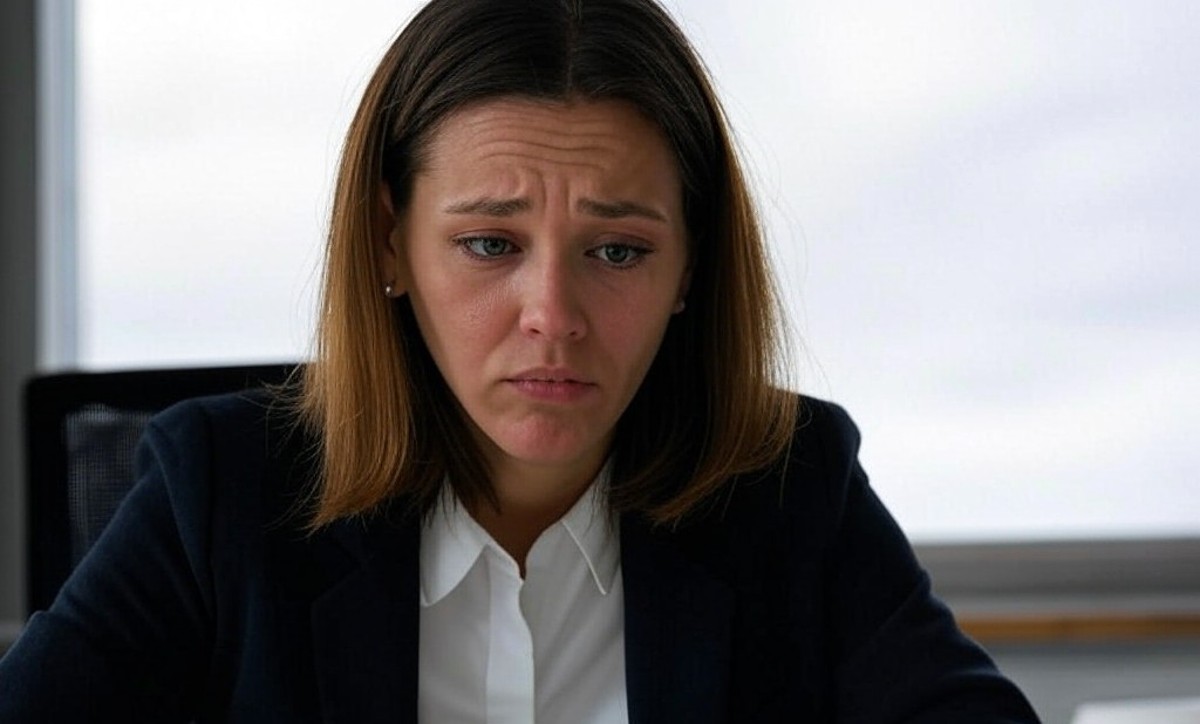 Dear readers, Catholic Online was de-platformed by Shopify for our pro-life beliefs. They shut down our Catholic Online, Catholic Online School, Prayer Candles, and Catholic Online Learning Resources—essential faith tools serving over 1.4 million students and millions of families worldwide. Our founders, now in their 70's, just gave their entire life savings to protect this mission. But fewer than 2% of readers donate. If everyone gave just $5, the cost of a coffee, we could rebuild stronger and keep Catholic education free for all. Stand with us in faith. Thank you. Help Now >
Dear readers, Catholic Online was de-platformed by Shopify for our pro-life beliefs. They shut down our Catholic Online, Catholic Online School, Prayer Candles, and Catholic Online Learning Resources—essential faith tools serving over 1.4 million students and millions of families worldwide. Our founders, now in their 70's, just gave their entire life savings to protect this mission. But fewer than 2% of readers donate. If everyone gave just $5, the cost of a coffee, we could rebuild stronger and keep Catholic education free for all. Stand with us in faith. Thank you. Help Now >
Deal W. Hudson: The Self-Examination of a Politically Active Catholic
FREE Catholic Classes
When the results of the November 6 election became clear early that evening, I realized it was time not for finger-pointing; it was time for self-examination.
Highlights
Catholic Online (https://www.catholic.org)
11/21/2012 (1 decade ago)
Published in Politics & Policy
Keywords: campaign 2012, politics, republican, conservative, liberal, democratic, political participation, Deal W Hudson
P>WASHINGTON, DC (Catholic online) - Over the last four national elections, I have led outreach efforts to Catholic voters, specifically those who attend Mass regularly.
During each campaign, I stressed the political importance of the settled, or non-negotiable issues as taught by the Catholic Church: opposition to abortion, same-sex marriage, euthanasia, fetal stem cell experimentation, and religious liberty.
About prudential issues, I stressed that "good Catholics" can disagree, but all should begin their reasoning from the first principles of Catholic moral and social teaching: the common good, human dignity and rights, subsidiarity, solidarity, and the preferential option for the poor.
I have no regrets about how I led these outreach programs, the teaching of the Church was represented accurately, and the teaching authority of the bishops was always underscored with respect. I do regret those times my own voice became angry or bitter, and I apologize to any and all who witnessed those moments.
Yet, when the results of the November 6 election became clear early that evening, I realized it was time not for finger-pointing about voter fraud, the GOP establishment, Romney's emphasis on the economy rather than social issues, the failure of Orca, the continued alienation of Latino voters over immigration, or alphabetical voter guides issued by state Catholic conferences; it was time for self-examination.
The moment arrived just a few days ago as I sat listening to a group of national faith leaders discuss "what went wrong" when the country sent the Obama/Biden ticket back to the White House for another four years. I agreed with most of what was said, but much of the tone, the how it was said, turned me off. I thought to myself, "If I am turned off, then much of America must be turned off as well."
The next day, my son Chip and I met a young man from Texas for breakfast, a new friend who I had grown to like very much over the past year. He asked me what I thought of the meeting the previous day, and I found myself saying something that surprised me:
"You know why people become Christians, it's because of love, God's love. People are burdened with guilt, with their sins and failures. They need and want forgiveness, redemption from the past, hope for the future, they want a happier life and to be with God in eternity."
"Come unto me, all you that labor and are heavily laden and I will give you rest." (Matt 11:28)
My young friend's eyes grew big and his smile even larger; he not only agreed but also had been waiting to hear someone well-established in "Christian politics" say it. I had not planned to say it, I told him, it just popped out, a product of my own frustration with the way Christians had been presenting themselves and their moral issues to the nation during a political season of historical importance.
But I knew I couldn't just leave it there. I hadn't intended to dismiss, or leave behind, the political effort over the past 50 years to articulate and defend the Christian vision that permeates the American Founding and natural and revealed laws that show us the way to the common good.
Let me put it this way: There is an inherent tension, almost a conflict, between what Christians must do in a political campaign and what Christians do in evangelization. In politics we focus on moral standards, standards of conduct and action; as evangelists we reach out to those whose failure to keep those standards have left them cut off from God and feeling alienated from the Church and its teachings. In politics we insist that people respect and abide by certain moral standards, but as evangelists we call these same people to "come home" even if they have not been living by them, if they have broken God's laws and commandments.
I know what I am saying is subject to caricature as a kind of "faith without works" attitude, but, of course, given more time I would tell, as they say, "the whole story." We enter the Church broken, and over time through its teaching and the grace of the sacraments we learn and we grow; the "works" will follow.
This, too, is subject to caricature as if I am saying that "sin" is gradually erased from our lives, and, of course, that is not the case. But our sin is a constant reminder of why we gave ourselves to God in the first place, why we need His grace and the redemptive sacrifice of Jesus Christ.
The humility that is pressed upon us by the constant repetition of sin and forgiveness has no place in our "religious outreach" to voters. This is not a criticism of our political efforts; it's the simple consequence of Christians seeking a goal in the political order, the election of one candidate rather than another, the support of one policy rather than another.
I'm not suggesting religious leaders should stand at political rallies and qualify every declaration of support for life, marriage, and religious liberty with, "And, by the way, I am a sinner who needs to ask for God's forgiveness every day of my life." That turns a political event into a religious one, or at least creates a confusing amalgam of both.
The best any of us can do, as Christians in politics, is pay close attention to our tone and our visage: What are we communicating by how we talk and by how we present ourselves to the world? Would anyone of good will who disagrees with us see or hear that we are attempting to share a gift or would they say we are "puffed up" with pride?
It's our way of speaking, and what used to be called "comportment," that reminds those on the campaign trail that as Christians we are not reducing ourselves to advocates of a few moral maxims, no matter how important. Our kindness, patience, and good humor in the midst of political rancor can be witness to the heart of our faith, to the heart of the Church.
So let it be, going forward!
"Though I speak in the tongues of men and of angels, but have not love..." (1 Cor 13:1)
-----
Deal W. Hudson is president of the Pennsylvania Catholics Network and former chairman of Catholic Outreach at the Republican National Committee.
---
'Help Give every Student and Teacher FREE resources for a world-class Moral Catholic Education'
Copyright 2021 - Distributed by Catholic Online
Join the Movement
When you sign up below, you don't just join an email list - you're joining an entire movement for Free world class Catholic education.
-

-
Mysteries of the Rosary
-
St. Faustina Kowalska
-
Litany of the Blessed Virgin Mary
-
Saint of the Day for Wednesday, Oct 4th, 2023
-
Popular Saints
-
St. Francis of Assisi
-
Bible
-
Female / Women Saints
-
7 Morning Prayers you need to get your day started with God
-
Litany of the Blessed Virgin Mary
Introducing "Journey with the Messiah" - A Revolutionary Way to Experience the Bible
-

Catholic Response to Devastating Los Angeles Wildfires
-

Federal Court Blocks Biden Administration's Gender Identity Rule
-
A Future for Life: Introducing the Winners of the Priests for Life Pro-Life Essay Contest
-
Reflections on Pope Francis' 2025 World Day of Peace message
Daily Catholic
 Daily Readings for Friday, January 10, 2025
Daily Readings for Friday, January 10, 2025 St. William of Bourges: Saint of the Day for Friday, January 10, 2025
St. William of Bourges: Saint of the Day for Friday, January 10, 2025 Prayer for a Blessing on the New Year: Prayer of the Day for Tuesday, December 31, 2024
Prayer for a Blessing on the New Year: Prayer of the Day for Tuesday, December 31, 2024- Daily Readings for Thursday, January 09, 2025
- St. Adrian, Abbot: Saint of the Day for Thursday, January 09, 2025
- St. Theresa of the Child Jesus: Prayer of the Day for Monday, December 30, 2024
![]()
Copyright 2024 Catholic Online. All materials contained on this site, whether written, audible or visual are the exclusive property of Catholic Online and are protected under U.S. and International copyright laws, © Copyright 2024 Catholic Online. Any unauthorized use, without prior written consent of Catholic Online is strictly forbidden and prohibited.
Catholic Online is a Project of Your Catholic Voice Foundation, a Not-for-Profit Corporation. Your Catholic Voice Foundation has been granted a recognition of tax exemption under Section 501(c)(3) of the Internal Revenue Code. Federal Tax Identification Number: 81-0596847. Your gift is tax-deductible as allowed by law.






 Daily Readings for Friday, January 10, 2025
Daily Readings for Friday, January 10, 2025 St. William of Bourges: Saint of the Day for Friday, January 10, 2025
St. William of Bourges: Saint of the Day for Friday, January 10, 2025 Prayer for a Blessing on the New Year: Prayer of the Day for Tuesday, December 31, 2024
Prayer for a Blessing on the New Year: Prayer of the Day for Tuesday, December 31, 2024

